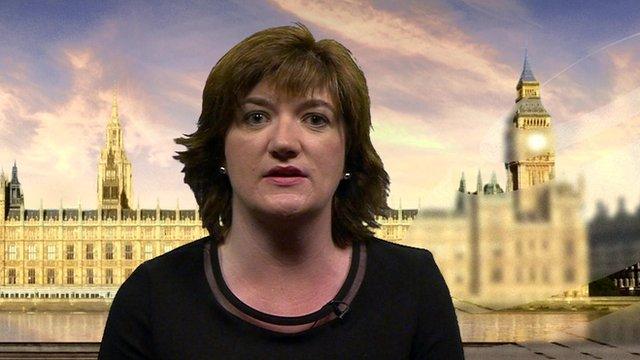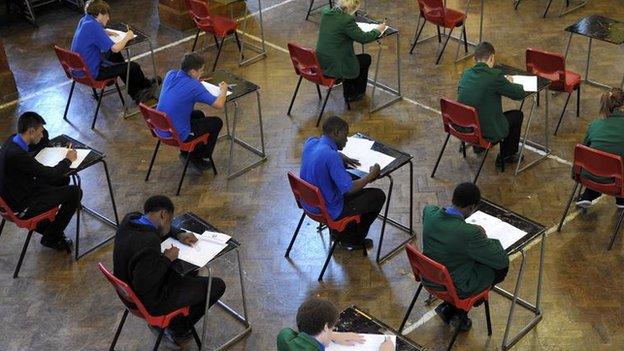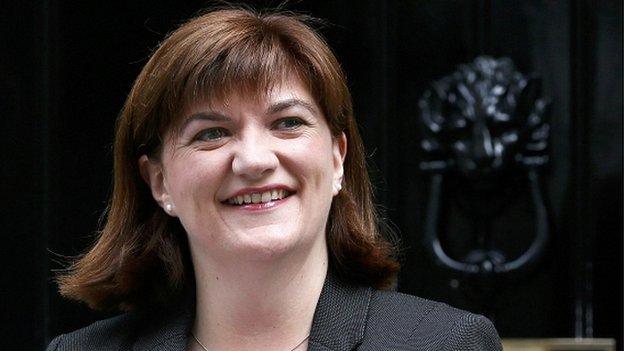Nicky Morgan says homophobia may be sign of extremism
- Published

Homophobic views may be a sign that a pupil is at risk of becoming an extremist, Nicky Morgan has said.
The education secretary was speaking as schools in England and Wales were issued with a guide to identifying pupils in danger of radicalisation.
She said attacking core British values or being extremely intolerant of homosexuality were examples of behaviour that could raise the alarm.
The NUT said the guidance would cause teachers "nervousness and confusion".
The advice is designed to enable teachers to identify pupils who may have come under the influence of extremist organisations or being "groomed" by extremists.
Teachers would then be expected to alert senior staff, social services and the police.
The move has not been prompted by the massacre in Tunisia but follows David Cameron's call for people to become "intolerant of intolerance."
Ms Morgan told BBC Radio 4's Today programme: "Radicalisation or the risk of children being drawn into non violent extremism is a very real threat in this country."
She said the advice - which will apply to all schools, including free schools and private schools - would ensure teachers were better able to identify children who had become radicalised by changes in their behaviour, or attitudes or remarks they made.
It would also help teachers identify pupils who were being "groomed" on the internet.
Ms Morgan said it was "a safeguarding" issue comparable to protecting children at risk from gangs or sexual abuse.
Asked to come up with an example of behaviour that might be a cause for concern, she said: "Sadly, Isis are extremely intolerant of homosexuality."
'Counter-productive'
She was asked whether a pupil who said they thought homosexuality was "evil" would be reported to the police.
Ms Morgan said it would "depend very much on the context of the discussion" and schools were capable of using their judgement.
The government has defined extremism as: "Vocal or active opposition to fundamental British values, including democracy, the rule of law, individual liberty and mutual respect and tolerance of different faiths and beliefs. "
The move is part of a wider obligation being placed on all public bodies from Wednesday to identify and report individuals at risk.
But NUT General Secretary of the NUT Christine Blower warned the guidance would be "counter-productive".
She said: "The jury is out as to whether extra statutory requirements are the most effective way to help young people stay safe, think critically, or reject engagement with groups who advocate violence.
"Already, in many schools, Prevent (the government's existing anti-extremism programme) is causing significant nervousness and confusion among teachers. If pupil well-being and safety is the aim, the Prevent strategy is felt by many teachers to be counter-productive and wide of the mark.
It risks closing down the very opportunities where the classroom can be used to develop democracy and explore human rights. "
- Published30 June 2015

- Published27 May 2015

- Published27 May 2015

- Published20 May 2015